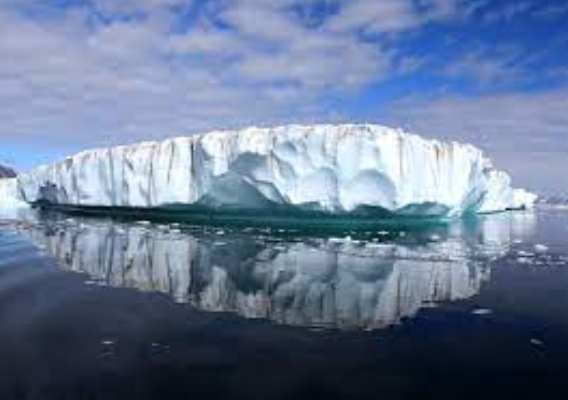Ice sheet collapse in Greenland is ‘inevitable’
According to a new study, 110 trillion tons of ice will melt in the next century.

Jason Box, who led the study, says ice melt is “now inevitable.”
September 15, 2022
Rising temperatures in Greenland have caused an unprecedented increase in ice melt, according to recent research published in the Nature Climate Change journal. This new study predicts a staggering 110 trillion tons of ice to melt within the next century.
Even if humans halted the emission of greenhouse gasses today, the study predicts a minimum of 10.8 inches of sea level rise as a result of the melting. This number could increase to roughly 30 inches if record high temperatures become routine around the globe in the next century.
The study employed a unique method of research, utilizing satellite data to hypothesize exact amounts of ice melt. Jason Box, the lead author, has called past research “not up to the task” and claims his new measurements reveal a “catastrophic path” for humanity.
These measurements estimate that 3.3% of Greenland’s landmass will completely melt in the next century. This unprecedented disequilibrium could cause over $1 trillion in property damage when it floods coasts around the world.
The study found that the primary cause of this heightened deliquesce was the increase of CO2 in the atmosphere. Since 1750, CO2 has increased by at least 50% due to human manufacturing and industrial technology, prompting a supercharge of the greenhouse effect and greatly inflating temperatures. Since CO2 absorbs and radiates heat, a continuous stream of emission has increasingly impacted rising temperatures.
In just the last month alone, temperatures in Greenland have risen to dangerously high levels. 12 billion tons of ice melted into the Arctic ocean last Saturday alone. Perhaps most concerning of all, the recent heat wave seen in September has been the biggest one ever recorded in Greenland.
Although ice melt is predicted to increase across the next century regardless of any improvements made today, there are still actions humans can take to prevent the matter from getting worse. The main issues lie with megacorporations that burn fossil fuels for energy, but normal people can try to avoid flying, start biking to work, or throw away less trash to play their part in helping the environment.
The study conducted by Jason Box is shocking to many, and presents dangerously concerning information about the state of our planet. Disaster seems imminent, but collectively choosing to make eco-friendly choices will hopefully minimize the damage that’s already been done.


